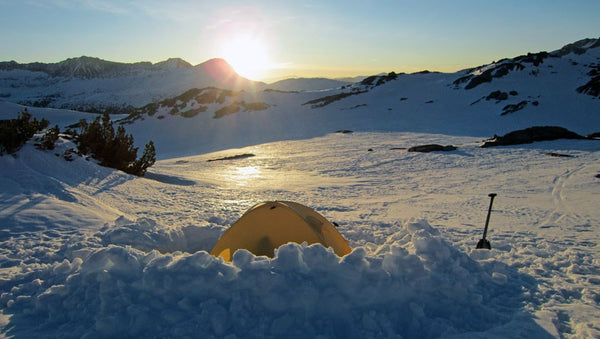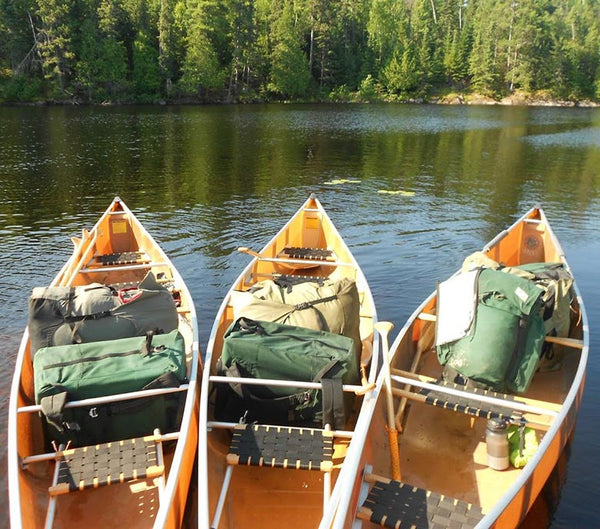First Time Camping
So, It's Your First Time Camping?
We've all been there: our first camping trip. It's the beginning of an adventure that will hopefully last for life, and getting your new campers comfortable with the outdoors is critical to helping them become happy outdoorspeople.
For many kids new to camping, their first camping trip may be their first time spending significant time away from their parents, and a little planning will help them learn what to expect while camping. Knowing what might happen can make all the difference for a kid in an uncomfortable and new environment, and help them feel prepared for the trip.
With that in mind, here are some great first-time camping tips to help your new Scouts have the best time on a first camping trip to remember.
Make A List
Before you do anything, have your camper make a list of the items they'll need for the trip. This feeds into the critical tenet of "be prepared" and is a great way to help new Scouts learn about the responsible practices Scouting encourages. We love this list compiled by the BSA because it features all the essentials you'll need to enjoy the outdoors as a first-time camper.
One of the nice things about the YAK New Scout kit is that it was designed to cover many of the first-time camping essentials you need on your checklist. Finding all those items and providing them in an easy one-stop package helps you take the guesswork out of what to take on your first camping trip.
Try It Out At Home
Another great tip while getting ready for your first camping trip is to test out all of your camping essentials in your backyard before you go. Have your Scout practice setting up and taking down a tent, getting their sleeping bag unpacked, packing their backpack themselves, using their camp stove (if needed) and then packing everything back up again.
By practicing these preparations in a comfortable and familiar environment, your camper will be able to gain confidence in the skills they'll need to feel comfortable once they get out in an unfamiliar setting like the woods.
Pack Early
After trying everything out at home, the next camping for beginners tip is to pack early. Don't wait until the night before a campout to finally start getting everything in your backpack, as that's a recipe for a sleepless night, lots of stress, and possibly forgotten items.
Have your camper start a week ahead of their trip. Look over their camping starter kit and make sure everything on your packing list is there, and in working order. If you're missing anything, you'll have extra time to go out and purchase what you need to complete your camping starter kit.
Pack all of your items in your backpack, but take time to follow good packing practices (link to prior article) so your camper will feel comfortable. You might also encourage your camper to carry their backpack around the house and neighborhood to get a feel for what it's like to walk with a pack.
Think About The Weather
Always have your camper pack a warm sleeping layer of clothing, because it can get cool at night even during the hottest summer months depending on your location. Review the 5- and 10-day weather forecasts for your area, and make sure your camper has clothing for the anticipated weather, plus any surprises. We recommend always packing a hat, long underwear, socks, a warm sweater, a rain suit, and a sturdy pair of pants because you never know when a storm might hit...even on a sunny day!
Start Small
Going on a week-long backpacking trip is probably not the best way to help a new camper learn to love the outdoors. Start with shorter trips close to home to help your camper feel comfortable as they expand their camping repertoire and build confidence. An overnight trip is one of the best ways for a new camper to get an experience for living outdoors, without the commitment to an entire long trip. This way, if they really find they don't like camping, you can get them home with the least amount of stress possible.
Go With Those Who Know
Thanks to being a member of the BSA or GS, you will always have other experienced campers to learn from, as well as adults to help your camper learn the ways of an outdoorsperson. That is one of the great reasons to become a Scout because it's a supportive environment to help all children learn to love the outdoors. Teaming up with experienced campers is one of the best ways to get a start in good camping habits that will last a lifetime.
Roll With It, And Laugh!
On any camping trip, there will inevitably be disasters and odd experiences. Help your campers to understand that's part of the joy of camping because it teaches you to be more self-reliant and adaptable to any situation. If you've been camping yourself, share some funny stories with your camper about when times have "gone wrong" for you, and what lessons you learned from everything. This will help your camper roll with whatever may come their way with the least amount of stress possible.
In conclusion, following a few simple preparation tips can help your camper have the best experience when they go camping for the first time. No matter what might happen on their first trip, following the BSA adage "be prepared" will help your new camper enjoy their first outdoor experience and hopefully become an outdoorsperson for life.
Thanks so much for learning with us today, and happy camping! Do you have any tips, let us know in the comments.
Leave a comment
Comments will be approved before showing up.
Also in News & Skills

8 CAMPING HACKS FOR COOL WEATHER CAMPING



Richard White II
Author